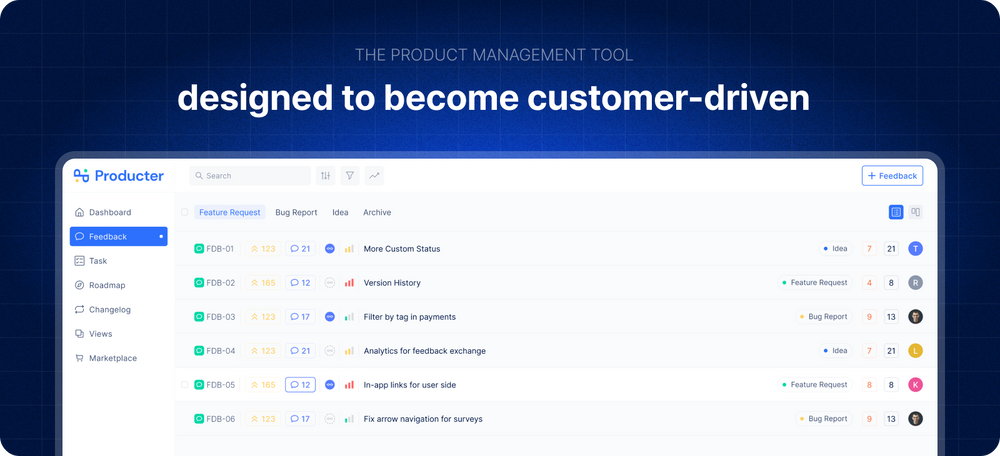Research and analysis of users' needs and wants are some of the most important aspects of product management. It plays a vital role in ensuring that the product is developed in a way that is tailored to meet the needs and wants of the target audience.
A product manager is able to make informed decisions regarding product design, features, and functionality if he or she gathers insights from potential customers and feedback from them.
User research can take many forms, including surveys, interviews, focus groups, and usability testing.
For example, a product manager can use customer feedback to decide which features to include in the product or how to improve existing features.
Some Examples of User Research in Product Management
Surveys
Surveys can provide a high-level overview of user attitudes and opinions on a given topic.
Surveys can be conducted by product managers to gather feedback from a large number of customers. This will enable them to gain a better understanding of what features they want and need in a product and what they need from it.
Interviews
It is possible to gain valuable insight into the pain points, motivations, and use cases of individual customers by conducting in-depth interviews with them.
Through the interviews, businesses can identify the needs of their customers in order to craft tailored solutions that will be most beneficial to them.
Focus Groups
The purpose of focus groups is to bring together a small group of customers who can discuss and give their opinions about a product in a group setting, in order to find out what they think.
Usability Testing
Usability testing is an interactive process that allows users to interact with a product or service and provide feedback on their experience.
Testing the usability of a product involves observing how customers use it to identify potential improvements.
The Importance Of User Research in Product Management
- Validate product decisions and assumptions
- Prioritize product features and design elements
- Identify customer pain points and areas for improvement
- Improve user experience and satisfaction
- Develop products that meet the needs of the target audience
What Happens If Product Managers Don't Do User Research
Neglecting to conduct user research can have a number of negative consequences, such as:
Missed Opportunities
The lack of user research may lead product managers to overlook important needs, preferences, and behaviors of the target audience, resulting in missed opportunities to develop successful products.
Poor Product-Market Fit
When product managers don't conduct user research, they may develop products that aren't tailored to target audiences, resulting in poor product-market fit and low sales.
Inefficient Development Processes
Inefficient development processes and wasted resources can result from product managers making assumptions without user research.
Decreased User Satisfaction
It can result in lower user satisfaction if product managers do not conduct user research in order to create products that are difficult to use or that fail to meet the expectations of their target audiences.
Lost Credibility
It is risky for product managers to neglect user research so as to risk losing trust and credibility from customers and stakeholders.
Conclusion
To ensure that their products meet the needs and wants of their target audience, product managers must conduct user research. Surveys, interviews, focus groups, and usability testing are some examples of this type of research. It can be used to validate product decisions and assumptions, prioritize features and design elements, identify customer pain points, improve user satisfaction, and create products that meet the target market's needs. A lack of product-market fit, inefficient development processes, decreased user satisfaction, and lost credibility can result from failure to do so.
Producter is a product management tool designed to become customer-driven.
It helps you collect feedback, manage tasks, sharing product updates, creating product docs, and tracking roadmap.






